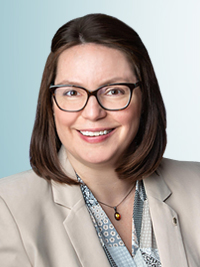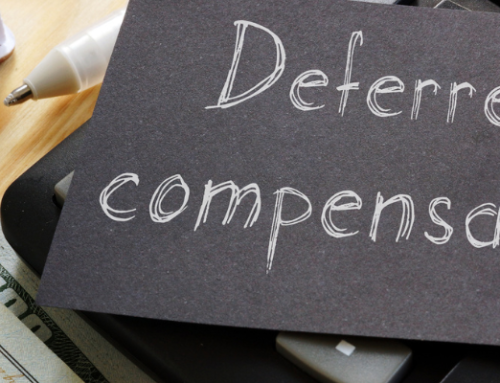Many types of not-for-profit organizations and for-profit entities could have received federal funding associated with Covid-19 relief. Many of the grants directly authorized within the Coronavirus Aid, Relief, and Economic Security (CARES) Act target state and local governments and tribes, healthcare organizations, and education. However, other organizations need to be alert as funding received from state or local governments may have originated in the Cares Act and may only be pass-through funding. Thus, the entity may be subject to a single audit requirement.
For more information on what a single audit is and get tips on how to tell if funds may originate from a federal source, read more here.
The list of CARES Act- and COVID-19-related programs that could trigger a single audit is provided below. This is not meant to be an exhaustive list and organizations should still check with their auditor as soon as possible to make sure spending of federal funds is below the threshold for a single audit and doesn’t apply – or whether it does.
Originator: Small Business Administration
Economic Injury Disaster Loan (EIDL)
CFDA Number: 59.008
Combined with the Paycheck Protection Program (PPP), EIDL funds were a valuable aid to businesses struggling from COVID-19 interruptions. Though PPP funds were not subject to single audit requirements, EIDL funds are. EIDL loans are non-forgivable and are subject to single audit rules.
EIDLs could be used for working capital or normal operating expenses during the COVID-19 pandemic, plus other costs for other disasters. That single audits are required for EIDL loans is not new; any EIDL loan from any disaster exceeding $750,000 would trigger a single audit.
Originator: Department of the Treasury
Coronavirus Relief Fund
CFDA Number: 21.019 (new program created in the CARES Act)
State and local governments were given a wide range of flexibility in how best to use Coronavirus Relief Funds (CRF). CRFs have been used for medical and public health expenses, payroll, COVID-19 compliance measures, economic support, and more.
Some organizations may be surprised to learn that even if they did not receive federal funds directly, they are still responsible for a single audit, as could be the case with CRFs. Many times CRF’s are passed through the state to the receiving entity. It is important to note that organizations may use CRFs to help cover the cost of a single audit. According to the U.S. Treasury, “recipients are permitted to use payments from the Fund to cover the expenses of an audit conducted under the Single Audit Act, subject to the limitations set forth in 2 C.F.R. § 200.425.”
Originator: Department of Education
Education Stabilization Fund (new program created in the CARES Act)
CFDA Number: 84.425
The U.S. Department of Education administered the overall fund, which consisted of 10 subsections spanning Discretionary Grants, Governor’s Emergency Education Relief Fund, Elementary and Secondary School Emergency Relief Fund, Higher Education Emergency Relief Fund, and Grants to Outlying Areas. Guidance states that any of these subsections can be treated as one program, the Education Stabilization Fund, for purposes of an audit.
School Safety National Activities
CFDA Number: 84.184
Funded by the Department of Education, School Safety National Activities aims to “improve students’ safety and well-being during and after the school day.” Examples of projects included school climate transformation grants, emergency management, mental health services, and more. This was part of an existing grant program that has undergone changes because of COVID-19.
Originator: Department of Health and Human Services
Provider Relief Fund (new program created in the CARES Act)
CFDA Number: 93.498
Approximately $178 billion in funds have gone out to healthcare providers in the wake of COVID-19. The third round of disbursements began in December 2020 and continued into January. Whether funding was to support COVID-related care and expenses or to supplement a physician’s revenue loss in 2020, a single audit would still apply for funds in excess of $750,000. This is in addition to HHS reporting requirements.
Guidance states that applicable for-profit healthcare entities have two options: a financial audit of specific HHS funds in accordance with Government Auditing Standards or a full single audit that meets the requirements of Subpart F of the Uniform Guidance.
Uninsured COVID-19 Reimbursement (new program created in the CARES Act)
CFDA Number: 93.461
Healthcare providers that offered COVID-19 treatment, testing, and vaccination for uninsured individuals could submit for reimbursements through HHS. The covered period is on or after February 4, 2020. In addition to single audit requirements for funds in excess of $750,000, healthcare providers must submit program reports.
Originator: Federal Communications Commission
Telehealth Program (new program created in the CARES Act)
CFDA Number: 32.006
Healthcare providers had another opportunity to receive federal funds to help combat COVID-19: financial support to establish telehealth services. Funding could be used to buy equipment, information, or telecommunications services. Funding maxed out at $1 million per recipient and organizations must submit invoices to the FCC to receive reimbursements.
Telehealth program funds cannot be used for administrative, personnel, training, or payroll costs and recipients must follow other FCC requirements for reporting.
Originator: Department of Justice
Coronavirus Emergency Supplemental Funding Program (new program created in the CARES Act)
CFDA Number: 16.034
State and local governments and tribes received funding to assist in responding to and preparing for COVID-19, including payroll, PPE, and medical supplies for jails and detention centers.
Specific program stipulations state that recipients may use up to 10 percent of funds on administrative costs. Organizations are prohibited from replacing Emergency Supplemental Funding from existing state or local funding; however, leveraging other federal funding is permitted and encouraged.
In addition to single audit requirements, entities must meet other reporting requirements and maintain records for three years.
In summary:
Note that for any federal fund, even if a single audit isn’t required, entities should keep meticulous records of how funds were used. Government monitors can request those records at any time, and funds received for expenses claimed by the entity that cannot be supported with documentation may be required to be returned to the grantor. Records can still be requested for at least three years after funds are used.
PBMares clients who have questions about single audit requirements or administering COVID-19 funds, whether federal or not, can reach out to Shawn Middleton, CPA with the firm’s Not-for-Profit group for questions.





